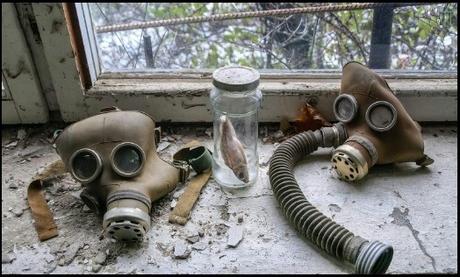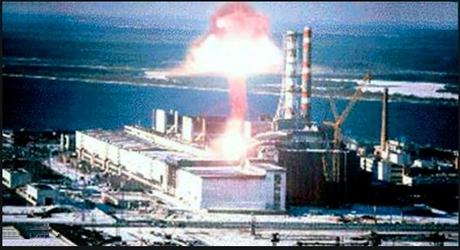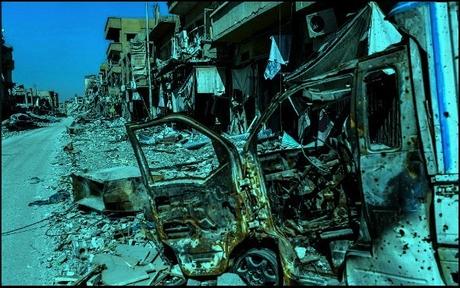
A while back, I posted a few commentaries on social media about the political tug-of-war that was developing in Belarus as the people of that country sought to oust via summer's 'democratic' elections the man they call "the last dictator in Europe". Lukashenko has been supreme leader of that country since 1994, making him the longest-serving political head of any European state. His party machine routinely rigs the vote in the polls every five years to ensure his comfortable victory.
However, back in August of this year it became patently obvious not just to the international observers but to anyone with an ear and an eye that this time the popular vote in the Belarusian presidential and legislature election had gone convincingly against Lukashenko, so much so that many of his own party were embarrassed when he claimed he had won with an 80% share of the poll!
Trump, of course, made similar victory claims three months later in the US presidential election. The difference between the two is that in the USA there was no large-scale vote-rigging and corruption in the counting halls (despite Trump's specious accusations), unlike in Belarus where Lukashenko cynically trashed the democratic process and then, because he is a dictator, in response to a country-wide outcry against the fixed result, ordered the troops and the secret police out onto the streets to arrest, beat up and in some cases kill his political opponents, those who didn't flee into exile.
The European Union has refused to recognize Lukashenko as the legitimate winner of the election and in a small irony, the USA has similarly refused. Three months down the line, the popular protests continue every week-end as do the beatings and imprisonment of opposition figures. Even the Russian foreign minister last week called for reforms in Belarus and Lukashenko has hinted that he may stand down at some unspecified point. (Ho hum.)
If you're wondering why I'm focusing on Belarus, it's because I feel immense sympathy for the people of that country, many of whom continue to live in a real-life netherworld, in large part because of what happened just ten miles across the border at Pripyat, site of the Chernobyl nuclear power plant, on the morning of 26th April 1986.
One of the most powerful and frightening books I have read this year is 'Chernobyl Prayer' by the Belarusian writer and Nobel Literature Prize winner Svetlana Alexievich. Coincidentally, Alexievich was also a high-profile member of the political group known as the Co-ordination Council, set up to oppose the corrupt government of Lukashenko at the ballot box. She was the last of that group's leaders to flee into exile in Germany after Lukashenko had ordered her expulsion "alive or in bits".
Everyone has heard of Chernobyl in Ukraine, (then, along with Belarus, a part of the USSR), for it was the scene of the worst nuclear catastrophe the world has known when, during a routine test to simulate recovery from an electrical power failure, the core of reactor #4 became unstable and exploded in an immense chain nuclear reaction, blowing the roof off the plant and hurling tonnes of radioactive material into the skies. The soviet authorities tried to drop lead sheets from helicopters to seal it, the lead just vaporised. They tried next with sand. The result was similarly unsuccessful, and all the while radioactive 'hot particles' of lead, sand and other contaminants were being spewed to the atmosphere. It took nine days to bring the fire under control.

Chernobyl nuclear reactor #4 blows, 26th April 1986
Because of the prevailing wind at the time, clouds of radioactive dust swept north-west across Europe, being carried as far as Scandinavia, northern Britain and beyond into the Atlantic. Unfortunately for Ukraine's immediate neighbour, over 70% of the radioactive fall-out from that disaster landed on Belarus, rendering large swathes of the country uninhabitable, 20% of the agricultural land contaminated and two million out of its 10 million population affected in some way.'Chernobyl Prayer' tells the human side of the whole harrowing story in a series of powerful personal accounts from a cross-section of eye-witnesses: rescue workers, soldiers, medics, local politicians, ordinary people from the towns and villages most impacted in Ukraine and Belarus; people, many of whom knew they were dying from the effects of exposure, who wanted to testify to the world about the true nature of the horrors resulting from a major nuclear catastrophe. It's not for the faint-hearted, but I think it should be widely read as a dire warning.
On the assumption that probably most of you won't search out a copy (Penguin Modern Classics if you are interested), I will briefly summarise a few of the telling aspects of that netherworld here. For days no one was told of the danger, as hundreds of emergency forces tried to contain the disaster with a lack of proper protective gear. They were heroes. Most of them died in subsequent months, burned up inside from the effects of radiation. They were buried in lead-lined coffins with concrete poured in on top. After a while, the conscripted troops were shipped in to forcefully evacuate thousands of people from their towns and villages in the designated exclusion zone. They were told it was only a temporary move and they would soon be able to return. Few possessions and no pets were allowed on the evacuation buses. No one was ever allowed home. The dogs and cats waiting patiently for their owners to return, to feed them, were shot by specialist units, along with the abandoned livestock, horses, cows, pigs, chickens. In every deserted village these slaughtered animals were piled into deep pits and buried. Then the decontamination squads started chopping down all the trees, breaking up the deserted properties and removing the topsoil from towns and villages, farmers fields and common land. All of it had to be buried deep underground and covered with the earth that had been excavated to receive it. That freshly laid covering was only going to get contaminated in turn. For those living outside of the immediate exclusion zone, orders went out that they were not to drink the local water, nor eat fish from the rivers or any produce of their orchards and fields. Most of them disobeyed these instructions because 'everything looked fine and it would be a waste'. They underestimated the invisible enemy at their cost and hundreds of thousands have led painful and fore-shortened lives as a result. Even today in Belarus the disaster rolls on. A visiting international press corps was offered milk in a village. The journalists accepted the milk but didn't drink it, instead sent it to be analysed. It contained 100 times the safe level of background radiation. As mentioned earlier, 20% of the territory of Belarus is technically unfit to live in, although people do live there - what else to be done? - and that will be the case for hundreds of years. Meanwhile the official decontamination process continues, nearly thirty-five years after the explosion. That programme is scheduled to go on until the year 2065!
The astronomical cost of the remedial activities required in the aftermath of the Chernobyl disaster nearly bankrupted the USSR and was the single most important factor in the break-up of the Soviet Union within a decade of the catastrophe. What happened at Chernobyl changed the course of world history. It also gave Alexander Lukashenko, ex-Soviet border guard, the opening he had been looking for to rise to power in battered Belarus. Ukraine relied on funding from the EU and the UN to finance the building of the huge 'sarcophagus' that encloses the deadly ruins of reactor #4. Pripyat became a ghost city within an exclusion zone that won't be safe to live in for hundreds of years although bizarrely a niche trade has grown up in tours to the 'atomic Mecca'. It's an expensive ticket, for full radioactive hazmat clothing and respirators have to be worn and tourists have to undergo decontamination procedures afterwards.
Chances of a nuclear-free future are pretty non-existent, despite the catastrophes at Three Mile Island in the USA in 1979, Chernobyl as described above Fukushima in Japan in 2011. Our persistent arrogant belief that we won't cock it up makes us a dangerous species that threatens the viability of every other life-form on the planet; and worries only intensify as the likes of Iran and North Korea push ahead with their nuclear programmes. Only this week Iran's top nuclear scientist Mohsen Fakhrizadeh was assassinated in a targeted attack outside Tehran. No one has claimed responsibility but the smart money is on the Israeli secret service. Tensions in the middle east will only escalate and Nevil Shute's premise for 'On The Beach ', his 1957 post-apocalyptic novel about life on Earth being wiped out by a nuclear world war, still looks uncomfortably prescient.

the crumbledust rubble of afterness
This week's poem on theme wasn't written about Chernobyl specifically, though it could have been. It is a more universal depiction of the aftermath of any apocalyptic event, like those accidents and wars that have wreaked havoc and misery in recent decades, or maybe something ominous waiting to happen in our precarious future.
Blue Dust TimeThe hour being on them once morefrom crippled hospitals to gutted mallsdusk hunters dance a dextrous hexstepping along sinister pavementsof doomed dreams, wanton schemerskicking up the crunbledust rubbleof afterness searching out symbolsof the great before, any talisman leftmore or less intact as they mighttrade for one night of pain relief orbetter still purchase a golden ticketaway from the poisonous dancefloorof detritus. Cruel luck chuckles aloudbut simple magic moves this crowdsame blue dust time same avenuessame hunters same elusive prizeas all the days before and still to comebecause for each lost and scary tribeclinging on in homelands blighted beyond repair their fatal farandolemust go on. What else to be done?
By the by, this has been my 300th Saturday Blog. I call that a bit of a roll!
Thanks as ever for reading my stuff, S ;-)
Email ThisBlogThis!Share to TwitterShare to Facebook
